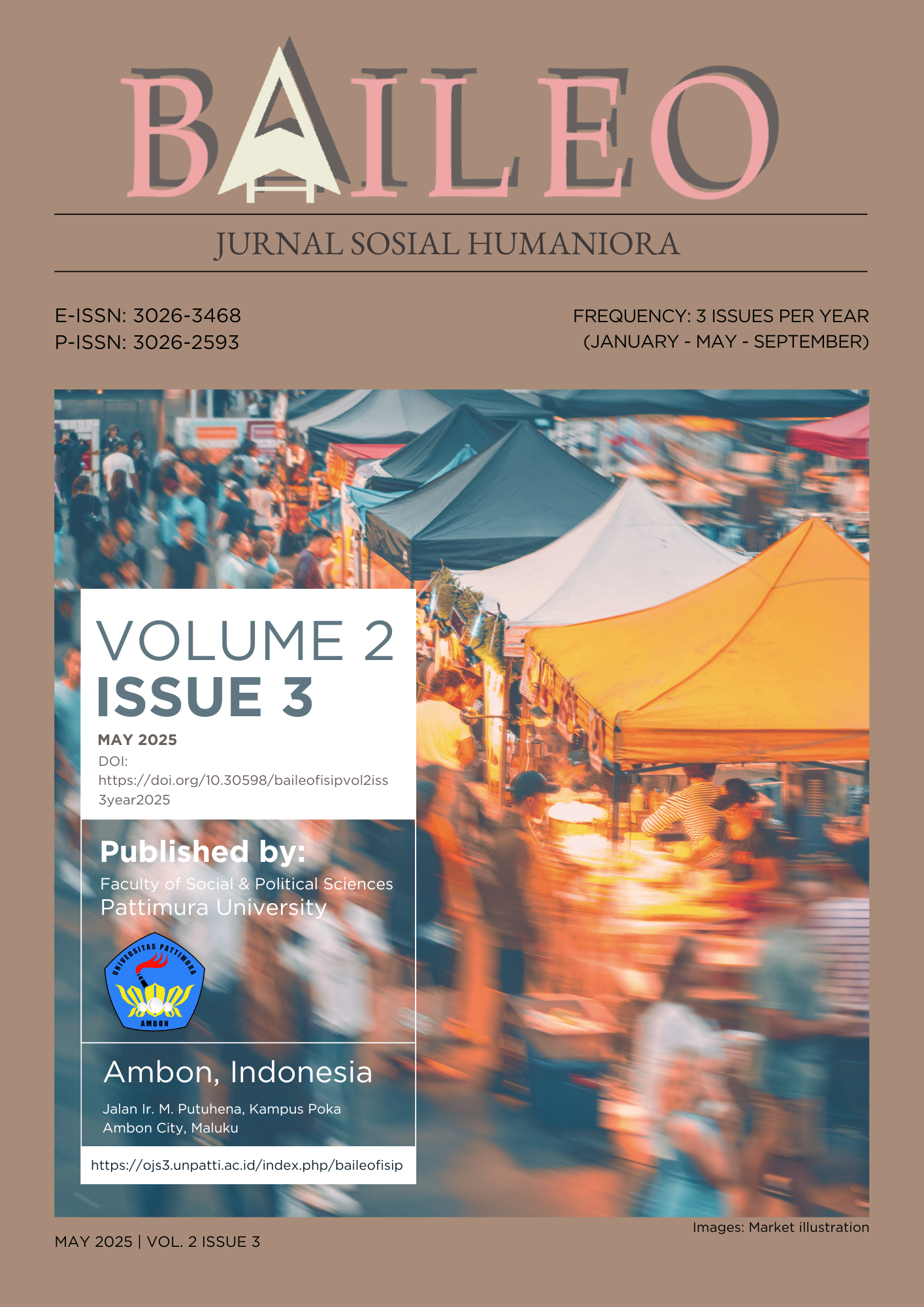Navigating Maritime Digitalization: Socioeconomic and Organizational Perspectives on Technological Transformation
Abstract
Maritime digitalization has become a transformative phenomenon that not only reshapes the operational landscape of the maritime industry but also has profound socioeconomic and organizational implications. This study aims to explore the impact of technological disruption on maritime management by examining digitalization dynamics through the lenses of disruptive innovation theory and the resource-based view. Employing a mixed-methods approach, this research integrates quantitative data analysis from industry reports with qualitative insights obtained through interviews and case studies of leading maritime enterprises. The findings reveal that digital technologies such as the Internet of Things (IoT), blockchain, and artificial intelligence significantly enhance operational efficiency and competitive positioning. However, the adoption of these technologies also presents complex challenges, including regulatory barriers, cybersecurity threats, and the need for workforce reskilling. This study proposes a conceptual model that illustrates the relationship between digital technologies, organizational capabilities, and market performance, providing a foundation for a deeper understanding of maritime digitalization dynamics. The novelty of this study lies in its approach, which not only highlights the technical aspects of digitalization but also examines how technological transformation affects the socioeconomic structure and work patterns within the maritime industry. The findings offer strategic recommendations for policymakers and maritime managers to navigate digital change effectively. Furthermore, this study contributes to the development of social sciences and humanities by emphasizing the interconnection between technological innovation, social change, and organizational adaptation in a historically conservative industry. Aligning technological investments with organizational strategies is a key factor in the successful digitalization of maritime operations, paving the way for future research on optimizing digital integration in maritime business management.
Downloads
References
Abdurrahman, A., Gustomo, A., & Prasetio, E. A. (2024). Impact of dynamic capabilities on digital transformation and innovation to improve banking performance: A TOE framework study. Journal of Open Innovation: Technology, Market, and Complexity, 10(1). https://doi.org/10.1016/j.joitmc.2024.100215
Bongomin, O., Nganyi, E. O., Abswaidi, M. R., Hitiyise, E., & Tumusiime, G. (2020). Sustainable and Dynamic Competitiveness towards Technological Leadership of Industry 4.0: Implications for East African Community. In Journal of Engineering (United Kingdom) (Vol. 2020). Hindawi Limited. https://doi.org/10.1155/2020/8545281
Chehri, A., Chaibi, H., Rhajbal, Z., & Chegri, B. E. (2024). Can Digital Technology Breakthroughs Contribute to Climate Change Mitigation? Procedia Computer Science, 236, 265–272. https://doi.org/10.1016/j.procs.2024.05.030
Ciano, M. P., Peron, M., Panza, L., & Pozzi, R. (2025). Industry 4.0 technologies in support of circular Economy: A 10R-based integration framework. Computers and Industrial Engineering. https://doi.org/10.1016/j.cie.2025.110867
Fang, H. (2022). Maritime Intelligent Monitoring System Based on Wireless Sensor Network and Construction of Shipping Legal System. Wireless Communications and Mobile Computing, 2022. https://doi.org/10.1155/2022/1394946
Gama, F., & Magistretti, S. (2023). Artificial intelligence in innovation management: A review of innovation capabilities and a taxonomy of AI applications. Journal of Product Innovation Management. https://doi.org/10.1111/jpim.12698
Huang, K., Wang, K., Lee, P. K. C., & Yeung, A. C. L. (2023). The impact of industry 4.0 on supply chain capability and supply chain resilience: A dynamic resource-based view. International Journal of Production Economics, 262. https://doi.org/10.1016/j.ijpe.2023.108913
Karakikes, I., Thanopoulou, H., Polydoropoulou, A., & Pronello, C. (2025). Automation and digitalisation on the transport workforce: How can the shock be prevented? Transportation Research Procedia, 82, 2984–3006. https://doi.org/10.1016/j.trpro.2024.12.232
Kruger, S., & Steyn, A. A. (2024). Leveraging technology adoption to navigate the 4IR towards a future-ready business: A systematic literature review. Engineering Reports, 6(5). https://doi.org/10.1002/eng2.12762
Lorenz-Meyer, F., & Santos, V. (2023). Blockchain in the shipping industry: A proposal for the use of blockchain for SMEs in the maritime industry. Procedia Computer Science, 219, 807–814. https://doi.org/10.1016/j.procs.2023.01.354
Majidi Nezhad, M., Neshat, M., Sylaios, G., & Astiaso Garcia, D. (2024). Marine energy digitalization digital twin’s approaches. Renewable and Sustainable Energy Reviews, 191. https://doi.org/10.1016/j.rser.2023.114065
Neligan, A., Baumgartner, R. J., Geissdoerfer, M., & Schöggl, J. P. (2023). Circular disruption: Digitalisation as a driver of circular economy business models. Business Strategy and the Environment, 32(3), 1175–1188. https://doi.org/10.1002/bse.3100
Palmié, M., Aebersold, A., Oghazi, P., Pashkevich, N., & Gassmann, O. (2024). Digital-sustainable business models: Definition, systematic literature review, integrative framework and research agenda from a strategic management perspective. International Journal of Management Reviews. https://doi.org/10.1111/ijmr.12380
Riddervold, M. (2023). The EU and the governance of the Maritime Global Space. Journal of European Integration, 45(8), 1143–1159. https://doi.org/10.1080/07036337.2023.2270615
Sala-Vilar, L. R., Li-Ying, J., & Traunecker, T. (2024). How do innovation intermediaries’ business models cope with their need to develop new digital services? Technovation, 131. https://doi.org/10.1016/j.technovation.2023.102950
Shang, Z., & Zhang, L. (2022). The Sustainable Digitalization in the Manufacturing Industry: A Bibliometric Analysis and Research Trend. Mobile Information Systems, 2022. https://doi.org/10.1155/2022/1451705
Sullivan, B. P., Arias Nava, E., Desai, S., Sole, J., Rossi, M., Ramundo, L., & Terzi, S. (2021). Defining Maritime 4.0: Reconciling principles, elements and characteristics to support maritime vessel digitalisation. IET Collaborative Intelligent Manufacturing, 3(1), 23–36. https://doi.org/10.1049/cim2.12012
Surucu-Balci, E., Iris, Ç., & Balci, G. (2024). Digital information in maritime supply chains with blockchain and cloud platforms: Supply chain capabilities, barriers, and research opportunities. Technological Forecasting and Social Change, 198. https://doi.org/10.1016/j.techfore.2023.122978
Tiwari, S., Sharma, P., & Jha, A. K. (2024). Digitalization & Covid-19: An institutional-contingency theoretic analysis of supply chain digitalization. International Journal of Production Economics, 267. https://doi.org/10.1016/j.ijpe.2023.109063
Trincado-Munoz, F., van Meeteren, M., Rubin, T. H., & Vorley, T. (2024). Digital transformation in the world city networks’ advanced producer services complex: A technology space analysis. Geoforum, 151. https://doi.org/10.1016/j.geoforum.2023.103721
Utama, D. R., Hamsal, M., Abdinagoro, S. B., & Rahim, R. K. (2024). Developing a digital transformation maturity model for port assessment in archipelago countries: The Indonesian case. Transportation Research Interdisciplinary Perspectives, 26. https://doi.org/10.1016/j.trip.2024.101146
Wang, H., Pan, C., Wang, Q., & Zhou, P. (2020). Assessing sustainability performance of global supply chains: An input-output modeling approach. European Journal of Operational Research, 285(1), 393–404. https://doi.org/10.1016/j.ejor.2020.01.057
Zhao, G., Xie, X., Wang, Y., Liu, S., Jones, P., & Lopez, C. (2024). Barrier analysis to improve big data analytics capability of the maritime industry: A mixed-method approach. Technological Forecasting and Social Change, 203. https://doi.org/10.1016/j.techfore.2024.123345
Copyright (c) 2025 Rizky Indra Pradita

This work is licensed under a Creative Commons Attribution 4.0 International License.




